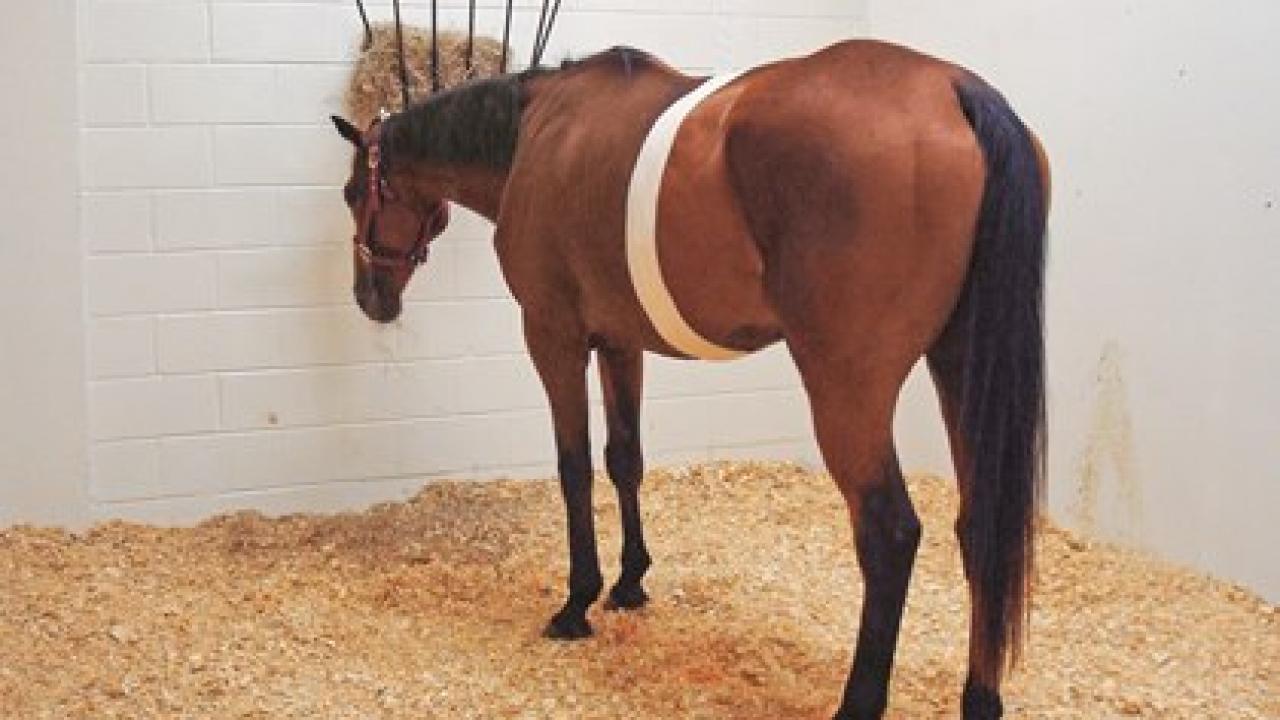Colic in horse is a medical term for abdominal pain in horses. It can be caused by a variety of things such as intestinal infection, constipation, and obstructions (injury or foreign objects).
There are two types of colic in horse:
There are two main types of colic in horses – acute and chronic. Acute colic usually comes on suddenly or is triggered by a specific event, while chronic colic lasts for more than three days. Acute colic are often gastric-related, whereas chronic colic are more likely to be caused by intestinal disease.
Symptoms of Colic in Horses
- Although there are various forms of equine colic, most horses display some combination of the following symptoms:
- Anxiety or depression
- Pawing at the ground
- Looking at their flank
- Rolling or wanting to lie down
- Lack of or infrequent defecation
- Poor appetite and water intake
- Excessive sweating
- Abnormally high pulse rate (over 50 beats per minute)
- Lack of normal gut noises
- Stretching out as if to urinate

How to Treat a Horse with Colic at Home
Colic is a common disease in horses. It is caused by gas, leading to intestinal obstruction, inflammation of the colon, and pain in the abdomen.
The first step for treating colic in horses is to contact your veterinarian immediately. A horse with colic should not be walked or ridden until treated by a veterinarian. If you suspect that your horse has colic keep an eye on its behavior and calls your vet if any unusual symptoms appear or get worse.
Some of the most common symptoms that may signal colic are:
-Excessive kicking at the belly
-Twitching muscles
-Rapid breathing (over 40 breaths per minute) -Loss of appetite -Refusing food and water -Wood chewing (chewing bark off trees)
Tips for Preventing Colic in Horses
As a horse owner, you want to do everything you can to prevent colic. Horses that experience colic often has more than one episode of the problem, leading to serious health issues.
Suppose you are not familiar with the term colic. In that case, it is acute abdominal pain in horses usually accompanied by signs of discomfort such as kicking at their abdomen or rolling on the ground. Colic can occur because of many different things, including overeating or eating too much grain-based food, irritation in the intestines or stomach, and an obstruction in the digestive tract.
If your horse has colic symptoms for more than two hours without relief, immediately take them to a veterinarian.
The Best Treatments for Horses with Colic at Home
Colic is a serious condition that can be life-threatening for horses. It is often acute, and the pain is often severe. It can happen for no apparent reason or be triggered by changes in diet, parasites, or stress.
There are various treatments for colic, including drugs, surgery, injections of gas into the abdomen, and intravenous fluids. But when at-home care is available, you could try some specific treatments to alleviate the symptoms without veterinary intervention.
The medications should be given following your vet’s instructions. If there are no side effects, it can be used once every 12 to 24 hours until relief sets in. Anti-inflammatory drugs may also help increase blood flow to the intestines and relieve gas buildup in the abdomen by preventing spasms of the
What Causes Equine Colic and How Can I Prevent It?
Equine colic is a major health concern in horses and can be fatal. The three most common causes of equine colic are:
1) Ingestion of an indigestible object,
2) Ingestion or excessive intake of feed or water, and
3) Acute injury to the stomach. A horse will typically show abdominal pain, irritability, sweating, depression, and refusal to eat.
Possible steps to prevent equine colic include:
1) Provide your horse with ample water on hot days,
2) Avoid feeding your horse too much grain-based food before bedtime or after strenuous exercise, and
3) Gradually introduce new feeds into your horse’s diet.
